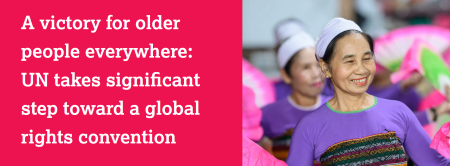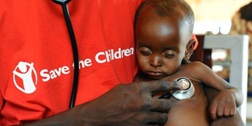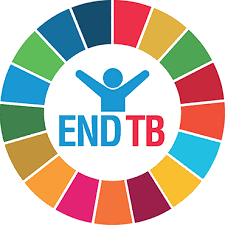Such good news! In a landmark moment for the global movement to protect the rights of older people, the UN Human Rights Council has adopted a resolution to establish an intergovernmental working group tasked with drafting a new, legally binding international convention.
This is a turning point for the protection of older persons’ rights and dignity, arrived at after years of sustained advocacy.
Click here to read more
“Cutting aid is not just a failure of moral leadership; it is a strategic miscalculation. Failing to address poverty, instability, health crises, human rights violations and gender inequalities worldwide only deepens global insecurity, fuelling displacement, economic shocks and conflict. These problems do not respect borders; they ripple across the globe. When we invest in children, we invest in a more peaceful, brighter future for all the world’s children, including our own.”
Save the Children Canada is calling for the Canadian government to speak out and stand firm in defence of foreign aid and the core values of international development, humanitarian principles, child rights, and gender equality. In a powerful opinion piece in The Hamilton Spectator, Danny Glenwright, President and CEO of Save the Children Canada, argues that investment in development and humanitarian assistance is not charity — it is a strategic and economic imperative and a moral obligation. Click here to read the full article.
“I think the most important thing is to become aware of the TB crisis. This is a crisis that has been unfolding over decades, and when crises unfold in slow motion, we often don’t pay much attention to them. But right now, especially, the TB crisis is just profound. People have seen their treatment interrupted over the last several weeks, and when we interrupt treatment for people living with TB in the midst of their antibiotic regimens, there’s a much greater chance that they’ll develop drug resistance, which is a personal catastrophe—it makes the disease much more likely to be fatal—but it’s also a societal catastrophe because it means there’s more drug-resistant tuberculosis floating around, giving the chance for the disease to evolve even further resistance and potentially evolve resistance to all of our existing tools to fight it, which is a truly terrifying prospect, not just in impoverished communities but for all people everywhere.” – John Green, author of Everything is Tuberculosis
Every year, March 24 is observed as World TB Day to amplify the urgency of ending tuberculosis (TB), the world’s deadliest infectious disease. TB continues to devastate millions globally, inflicting severe health, social and economic consequences.
Stronger commitment is crucial, especially as declining international funding for TB in the current geopolitical climate threatens the achievement of global targets to end TB by 2030.
Most troubling are the recent cuts to USAID. The World Health Organization warns that the funding cuts are endangering millions of lives and threatening to undo hard won progress against TB. Click here to read more.
GRAN has recently signed on to a joint letter to the Prime Minister calling for action to speak out against these cuts and to work with governments, the private sector and other partners, including affected communities and civil society, to resolve this global public health catastrophe. Click here to read the letter.
"After 80 years of men-only leadership, it’s time for a woman to serve as UN Secretary-General."
In advance of International Women's Day, The Elders join the call for the next UN Secretary General to be a woman. In the words of Elbegdorj Tsakhia, Former President and Prime Minister of Mongolia and member of The Elders, "The UN’s glass ceiling remains unbroken, and it is vital that we ensure it is fit for purpose in the 21st century. This includes appointing a woman as the next Secretary-General through a fair and transparent process that seeks the most qualified candidate. As the time for member states to make nominations approaches, we urge them to champion this cause and nominate only women candidates. This is our opportunity to drive transformative change and send an unequivocal message that women are essential to solving the world’s most pressing challenges. If we are to build a more stable and united world, we must guarantee that women have an equal voice at the table – not as a symbolic gesture, but as a necessity."
Read Elbegdorj Tsakhia's full statement here.
To learn more about the campaign to elect a female UN Secretary General, visit the 1 for 8 Billion website. This global network is calling for a more transparent and inclusive selection process and is urging Member States to only consider nominating women candidates for the position in 2026. "After 80 years of men-only leadership it is time for a woman to serve as UN Secretary-General. The organization sets standards and expectations for the world; it cannot lead us into a future of gender equality until its own house is in order. Member States should therefore only consider nominating women candidates."
“Security should certainly be part of the foreign aid discussion: notably, how our security is affected by insecurity and poverty elsewhere.”
Ottawa-based development practitioner and writer, Ian Smillie, has written an opinion piece for the Ottawa Citizen debunking the idea that cutting foreign aid and using the funds to beef up Canada’s military will make us safer. He also highlights how little of Canada’s current foreign aid dollars are actually going towards eliminating global poverty.
Click here to read the full article.
In an event marking International Development Week, Canada’s Minister of International Development, Ahmed Hussen, announced on Thursday a contribution of $360.6 million over six years (2025-2031) for the Canadian NGO Nutrition International. The funding will help provide life-changing nutrition resources to people in need, with a particular focus in sub-Saharan Africa and South Asia.
Each year, Nutrition International’s programming reaches approximately 150 million children with two doses of vitamin A, and 400 million people with iodized salt. Over the past 30 years, with investments from the Government of Canada, Nutrition International has reached over 1 billion people, helped avert 7 million deaths, prevented 15 million cases of anemia among women and girls, prevented 12 million cases of stunting among children, and enabled more than 5 million children to gain an additional year of education.
This announcement of nutrition-specific funding is good news! Read more here.
Over 300 organizations from 44 countries and territories along with 180 academics and legal experts from 21 countries have signed this joint letter ahead of the February 3rd retrial of five prominent Salvadoran water defenders who are facing politically-motivated charges. The letter lays out the ways in which mining would increase El Salvador’s risk of environmental contamination, human rights violations, and public health concerns, and requests that President Bukele listen to water-defender movements in El Salvador and not allow new mining developments.
GRAN is one of the signatories to this letter, supporting the human rights of local and Indigenous peoples to have access to clean water and to have the right to protest when that is threatened.
Click here to read more.
International Development Week (IDW) is held annually in Canada during the first full week of February. IDW aims to inform, inspire, and involve Canadians in Canada’s international development efforts. It is a time for us to reflect and take pride in the many ways Canadians are helping to eradicate poverty and make our world more just, equitable, and sustainable.
This year, International Development Week begins Sunday, February 2 and runs till Saturday, February 8. Many events are planned across Canada, some in person, others online.
Check out events sponsored by Cooperation Canada and other events sponsored by each of the eight provincial centres for international and global cooperation below. (You may wish to explore each of the regions because many events will be offered virtually. You aren't limited by geography!)
Northern regions of Canada
British Columbia
Alberta
Saskatchewan
Manitoba
Ontario
Quebec
Atlantic provinces
We hope you are inspired by Canada's and Canadians' contributions as you explore the many learning opportunities offered during International Development Week.
In a recent article, Professor William G. Moseley argues that in order to address Africa's food security problems, African agriculture needs to be de-colonialized. He puts forward agroecology as a sustainable, economical, and decolonial approach, one that works with science, nature, and traditional local knowledge. Click here to read more.
Violence against women and girls remains one of the most prevalent and pervasive human rights violations in the world. Globally, almost one in three women have been subjected to physical and/or sexual intimate partner violence, non-partner sexual violence, or both, at least once in their life.1
November 25th marks the International Day for the Elimination of Violence Against Women and the beginning of the UN’s 16 Days of Activism Against Gender-Based Violence.
The United Nation’s Spotlight Initiative is the world’s largest targeted effort to end all forms of violence against women and girls. Learn more about this high-impact global initiative in this 2-minute video: Unprecedented: A Pathway for Ending Violence against Women and Girls .
And, during the upcoming 16 Days, consider how might do your part to make a difference: 10 Ways You Can Help End Violence Against Women.
Pages



